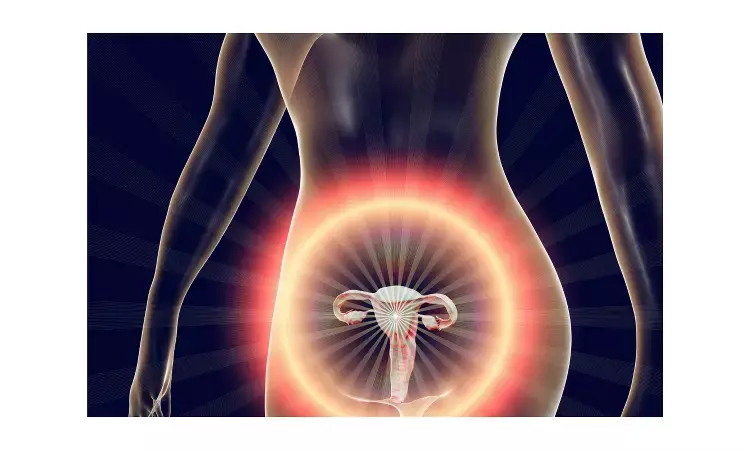- Home
- Medical news & Guidelines
- Anesthesiology
- Cardiology and CTVS
- Critical Care
- Dentistry
- Dermatology
- Diabetes and Endocrinology
- ENT
- Gastroenterology
- Medicine
- Nephrology
- Neurology
- Obstretics-Gynaecology
- Oncology
- Ophthalmology
- Orthopaedics
- Pediatrics-Neonatology
- Psychiatry
- Pulmonology
- Radiology
- Surgery
- Urology
- Laboratory Medicine
- Diet
- Nursing
- Paramedical
- Physiotherapy
- Health news
- Fact Check
- Bone Health Fact Check
- Brain Health Fact Check
- Cancer Related Fact Check
- Child Care Fact Check
- Dental and oral health fact check
- Diabetes and metabolic health fact check
- Diet and Nutrition Fact Check
- Eye and ENT Care Fact Check
- Fitness fact check
- Gut health fact check
- Heart health fact check
- Kidney health fact check
- Medical education fact check
- Men's health fact check
- Respiratory fact check
- Skin and hair care fact check
- Vaccine and Immunization fact check
- Women's health fact check
- AYUSH
- State News
- Andaman and Nicobar Islands
- Andhra Pradesh
- Arunachal Pradesh
- Assam
- Bihar
- Chandigarh
- Chattisgarh
- Dadra and Nagar Haveli
- Daman and Diu
- Delhi
- Goa
- Gujarat
- Haryana
- Himachal Pradesh
- Jammu & Kashmir
- Jharkhand
- Karnataka
- Kerala
- Ladakh
- Lakshadweep
- Madhya Pradesh
- Maharashtra
- Manipur
- Meghalaya
- Mizoram
- Nagaland
- Odisha
- Puducherry
- Punjab
- Rajasthan
- Sikkim
- Tamil Nadu
- Telangana
- Tripura
- Uttar Pradesh
- Uttrakhand
- West Bengal
- Medical Education
- Industry
Estrogen has positive impact on healing of vaginal wounds: Study

Striking evidence from animal studies dating back to 1962 that estrogens play a crucial role in cutaneous wound healing and repair is reported. Characteristic of both chronic wounds and acute wounds that fail to heal are excessive leukocytosis and reduced matrix deposition. Estrogen is a major regulator of wound repair that can reverse age-related impaired wound healing in humans.
A systematic search by Dr Eva V. Vodegel MD and team has revealed that estrogen therapy has a positive effect on vaginal wound healing. However future studies are required to determine whether oestrogen therapy has the potential to improve surgical outcomes.
The findings of the study are published in Neurology and Urodynamics.
The objective of the study was to determine the effects of oestrogen or oestrogen deprivation on vaginal wound healing.
The study was a systematic search of OVID MEDLINE, OVID Embase, and Web of Science was conducted up to January 28, 2020. They included original studies comparing wound healing-related outcomes of oestrogen exposed subjects (female animals and women) to hypo-oestrogenic subjects after vaginal surgery. Data on wound healing-related outcome measures were extracted. For each individual comparison, the standardised mean difference (Hedges' g; SMD) and 95% confidence interval (CI) were calculated.
The results of the study were
• A total of the 1474 studies were reviewed, 14 studies were included for review, and 11 provided data for meta-analysis.
• Oestrogen improves neovascularisation (SMD: 1.13, 95% CI: 0.67–1.60), microscopic wound closure (SMD: 0.98, 95% CI: 0.66–1.29), collagen synthesis (SMD: 1.08, 95% CI: 0.42–1.74), and tissue strength (SMD: 1.26, 95% CI: 0.53–1.99) in animals.
• Oestrogen increases granulation (SMD: 1.67, 95% CI: 0.54–2.79) and accelerates macroscopic wound closure (SMD: 1.82, 95% CI: 1.22–2.42) in women and animals.
• Oestrogen decreases the inflammatory response (SMD: −0.58, 95% CI: −1.14 to −0.02) in women and animals and reduces levels of transforming growth factor (TGF)-β1 (SMD: −1.68, 95% CI: −2.52 to −0.83) in animals. All results were statistically significant.
Dr Vodegel and team concluded that "Oestrogen therapy has a positive effect on vaginal wound healing. Future studies should determine whether oestrogen therapy has the potential to improve surgical outcomes."
Reference: https://doi.org/10.1002/nau.24819
Medical Dialogues consists of a team of passionate medical/scientific writers, led by doctors and healthcare researchers. Our team efforts to bring you updated and timely news about the important happenings of the medical and healthcare sector. Our editorial team can be reached at editorial@medicaldialogues.in.
Dr Kamal Kant Kohli-MBBS, DTCD- a chest specialist with more than 30 years of practice and a flair for writing clinical articles, Dr Kamal Kant Kohli joined Medical Dialogues as a Chief Editor of Medical News. Besides writing articles, as an editor, he proofreads and verifies all the medical content published on Medical Dialogues including those coming from journals, studies,medical conferences,guidelines etc. Email: drkohli@medicaldialogues.in. Contact no. 011-43720751


